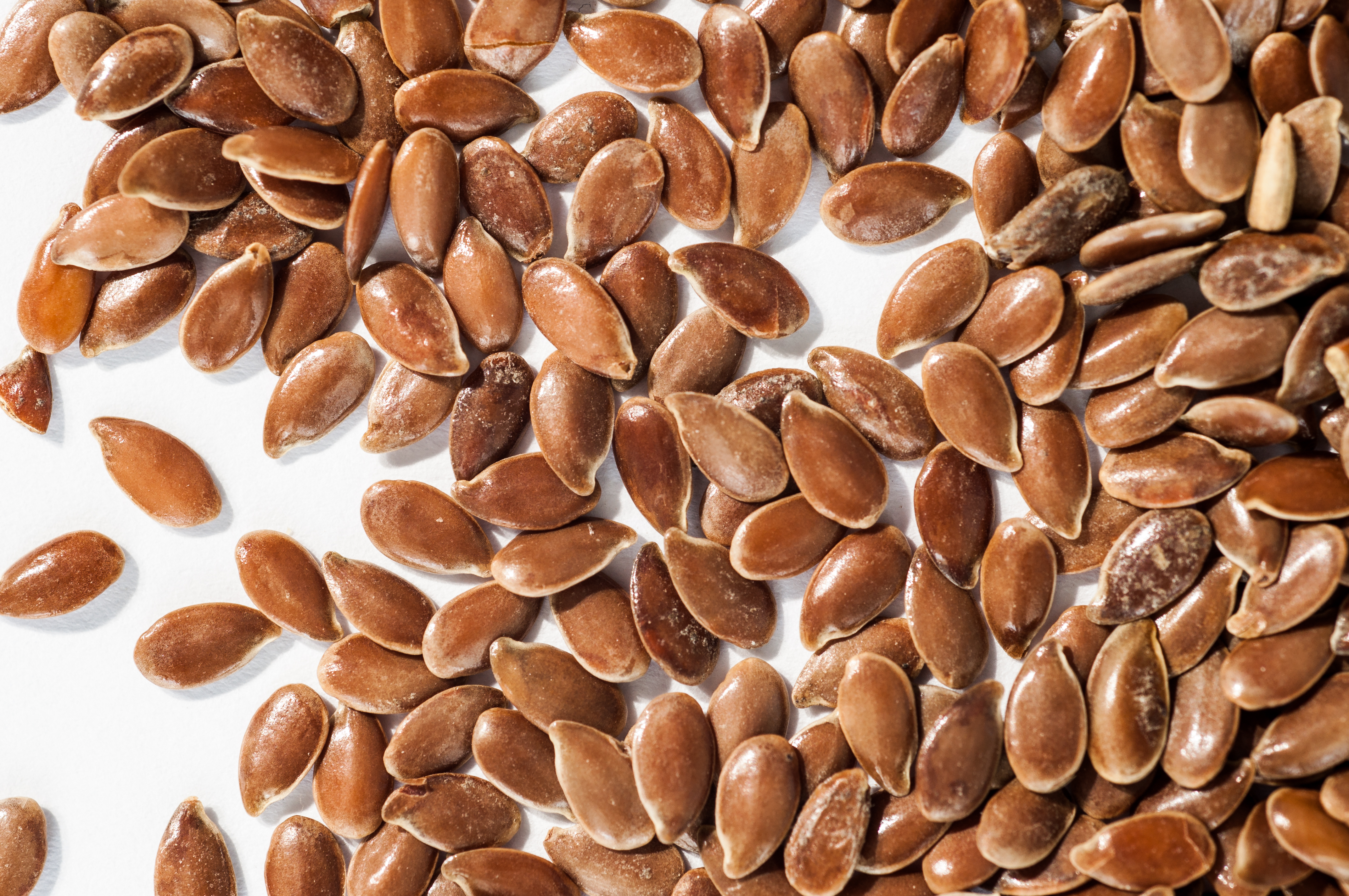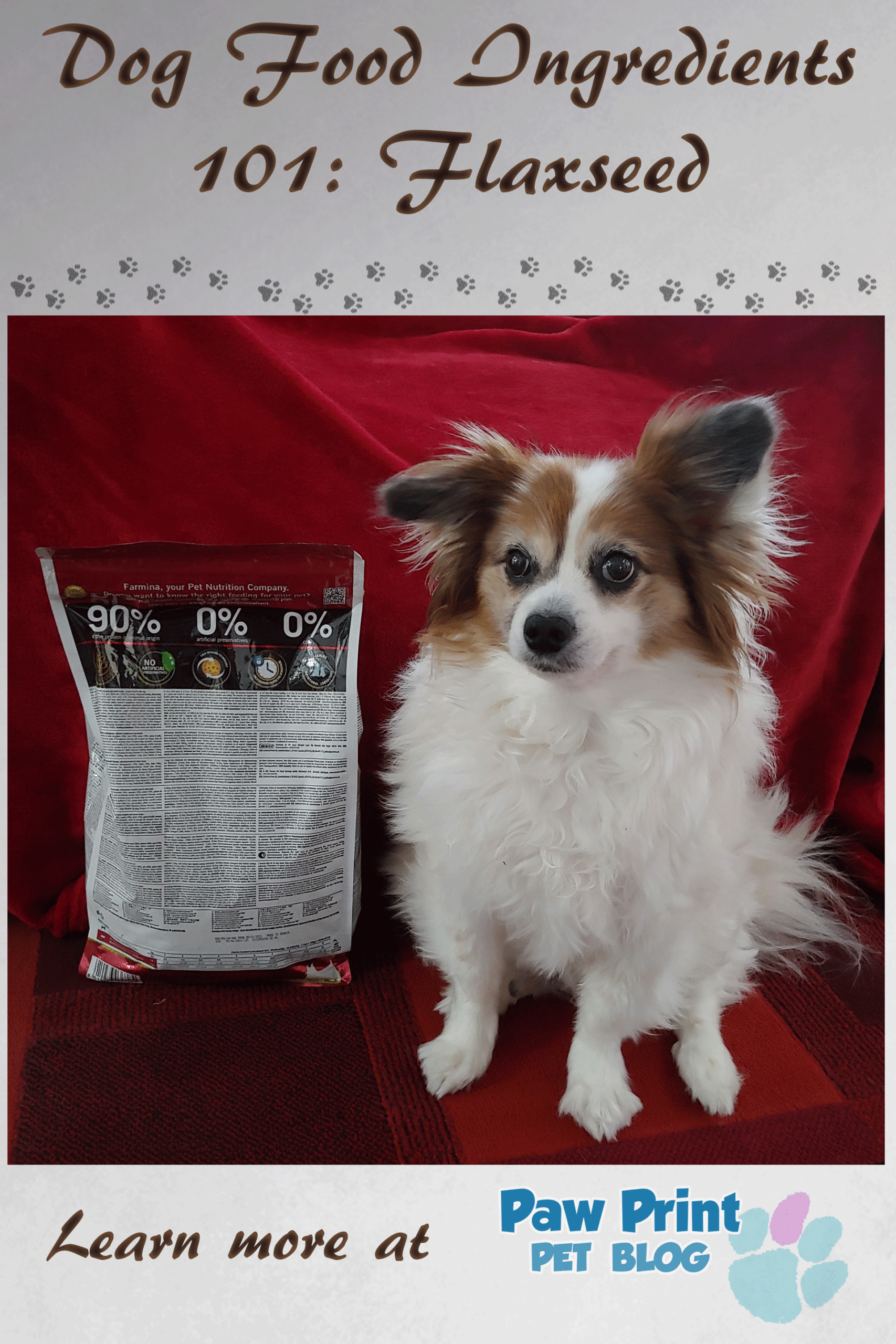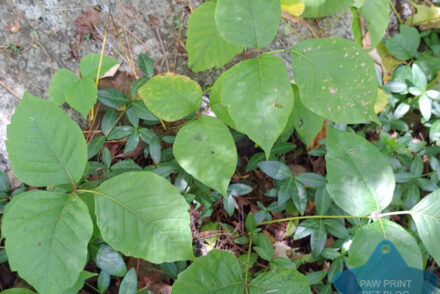It’s always nice when you look at the ingredient list on the back of your dog’s food bag and actually see the names of ingredients you can pronounce! And spell! This is only the first week of this year’s A to Z blog challenge and already I’ve written about ingredients like dicalcium phosphate and Enterococcus faecium. Although I love writing, spelling has never been my strong suit. Needless to say, I was thankful for copy and paste this week, so I didn’t have to spell Enterococcus faecium over and over again! Now flaxseed I can do.
This post is part of our 2023 April blogging from A to Z Challenge! Join us this month as we go through the alphabet, A to Z, learning more about some of the ingredients that are commonly (or not so commonly, in some cases) found in our dog’s food!
Post Contents:
What is Flaxseed?
Flaxseed, as the name suggests, are the seeds of the flax plant (Linum usitatissimum). The seeds are small and either brown or yellow. They have a somewhat nutty flavor and are considered to be a superfood for humans (and dogs?).

Photo via BastienM. Licensed under the Creative Commons Attribution-Share Alike 3.0 Unported license.
Why is Flaxseed Added to Dog Food?
Flaxseed has a number of benefits for both people and dogs. When added to dog food, it can act as a fiber and plant protein source, and also provides valuable nutrients such as omega fatty acids, antioxidants, magnesium, choline, manganese, thiamine, and phosphorus.
Cons of Feeding Flaxseed to Dogs:
Although the flaxseed itself is considered safe, in moderation, for dogs, feeding too much can lead to flaxseed poisoning. Raw flax contains cyanogenic glycosides. Although most of the toxin is removed during processing, overdosing on flaxseed can lead to cyanide poisoning. Symptoms most commonly include vomiting and diarrhea, but can also include paralysis, difficulty walking, rapid heart rate, lethargy, seizures, and shortness of breath.
Dogs should not be fed raw flax for this reason. If your dog is on any medication, especially anticoagulants, insulin, or blood pressure medication you should speak with your vet before offering supplemental flaxseed. It’s also important to note that some dogs can be allergic to flaxseed.

Benefits of Feeding Flaxseeds to Dogs:
- Digestive Aid: Flaxseed is high in fiber, which can help maintain a healthy GI tract.
- Nutrients: Flaxseed contains nutrients such as magnesium (bone health), manganese (helps nutrient absorption), choline (liver and brain function), thiamine (metabolism and nerve function), and phosphorus (bone health).
- Skin & Fur Health: The omega fatty acids in flaxseed can help promote a healthy skin and coat.
- Immune Support: Antioxidants in flaxseed help support the immune system, and may even be able to help prevent cancer!
- Reduced Inflammation: The omega fatty acids in flaxseed have also been shown to help reduce inflammation, including inflammation occurring in the joints due to arthritis.
So What’s the Verdict on Flaxseed? Is it Safe as a Dog Food Ingredient?
Flaxseed is safe, and can be quite beneficial, to dogs as long as it’s offered in moderation and your dog isn’t allergic to it. Luckily, when feeding a dog food that contains flaxseed as an ingredient, you shouldn’t have to worry about overdosing.
Comment below! Does your dog food contain flaxseed?







No Comments